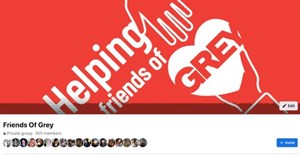
Social recruitment - what I've learned so far
We believed (and still believe) that we could do this better and made it our mission to use crowdsourcing to find the best candidates for the best jobs at the lowest time and financial cost. As a result, we launched Hiring Bounty.
This crowdsourced recruitment business is off to a great start but the process hasn't been easy. Below are the top five points that I've learned about recruitment in the time since we began working on the business.
1. Recruitment agencies: the good, the bad and the ugly
As with every industry, there are some great recruiters out there. These individuals retain the highest moral code and refrain from promoting positions to those that are ill-suited for the job. They are, however, a rare breed.
In an industry that is largely driven through sales (selling candidates to businesses and businesses to candidates), I've seen a large number of partial truths and complete lies.
Having spoken to HR managers, CEOs and employees, this sales approach has dramatically undermined the trust that we used to have in this industry. Are they really interested in our business? Our career? Or are they purely looking to maximise their own profit? (I think you'll agree the vote, for the most part, is for the latter.)
2. Talent managers: Stone Age to chiselled point
Through interacting with scores of HR/talent managers who are looking to hire the best candidates, there is an enormous range in world views.
In some cases they are resistant to any and all change in the recruitment space. Others, such as Famous Brands, Woolworths and many others, are aware of what the future brings and are willing to proactively engage the changing recruitment landscape. It is these proactive individuals who are getting the best results from the recruitment activities and often their businesses are flourishing as a consequence.
As with anything, doing the same vanilla as everybody else is showing diminishing returns and it's time to do something different (or at least give it a try).
3. Job market fragmentation
Ten-to-fifteen years ago, the job market was relatively simple (for both the employer and the employee). A large portion of job seekers went into relatively few boxes, based on their academic learning. A higher proportion of graduates went into their degree with a clear view on what their career would be.
This has obviously changed. Said simply: in 2010, the top 10 in-demands jobs didn't exist in 2004 (Did You Know).
For employees, this represents a terrifying environment with enormous choice and a clear lack of information about what each of these jobs require, expected salary and entry requirements. This is largely due to the rapid pace at which everything is changing in this information age but also due to the lack of standardisation between jobs across businesses (such as social media manager vs community manager; account manager vs client service manager; developer vs engineer etc).
Similarly with seniority - a junior in a big business is often the same as a senior in a smaller business. This makes it all the more confusing for applicants and recruitment agencies alike.
The result is that salary has become the only legitimate measure - which is terrible for the employment market.
5. Cultural fit is key
The needs of employees from the Generation X- and Generation Y- and beyond groups have changed significantly from that of the Baby Boomers.
From what I'm seeing, an increasing percentage of educated individuals are being far more particular about the businesses that they work for. Their access to information means that they require a cultural fit between their own key principles and that which drives the company.
The impact is clear: good fit reduces employee churn by as much as 30%.
This concept appears to be widely understood across the employer spectrum. Unfortunately, due to a poor success rate by employees when looking for jobs, they often feel forced to take the first job that comes their way. Similarly, employers also suffer from low-quality applicants and therefore take the first person who is half-decent.
The result is a disconnect between their cultural needs and a high churn for the company, recurring high recruitment fees and, generally, poor performance by employees.
6. Money buys attention, social drives quality
Within the Hiring Bounty ecosystem, we're noticing something quite interesting. The higher the bounty, the more clicks and attention the job will receive. That said, we are experiencing a fairly uniform referral rate across all jobs.
The key takeout at this stage is that the bounty is buying individuals' attention but their social contract with their friends is meaning that they are only referring individuals based on whether they truly believe it is a good job for them. Unlike recruitment agencies, there is a strong level of responsibility in referring individuals to the positions that are best suited to a friend's/colleague's position.
The real question
Hiring Bounty is proving to be a fascinating adventure as we explore better ways of performing the critical recruitment function for businesses. We know it can be dramatically improved, and crowdsourced recruitment is proving to be efficient and effective. The real question is how long it'll take for businesses to acknowledge the gains and try a different approach.

About Greg Schneider
Greg Schneider is MD of Hiring Bounty (www.hiringbounty.com; @hiringbounty). While heading up new business in Cape Town for ORM company BrandsEye, he was exposed to the power of social conversation. Identifying the value there, he launched Hiring Bounty, a business that formalises social recruitment by offering a platform to crowdsource the process. Email Greg at moc.ytnuobgnirih@redienhcs.gerg, follow @greg_dale on Twitter and connect on LinkedIn.















![[Biz Takeouts Podcast] 63: Agency focus - Artifact Advertising & Hiring Bounty](https://biz-file.com/c/1306/136045-300x156.jpg)
![[Biz Takeouts Lineup] 63: Agency focus - Artifact Advertising & Hiring Bounty](https://biz-file.com/c/1306/135643-300x156.jpg)